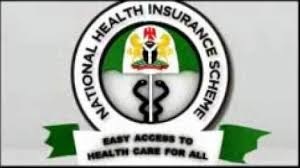The sum of N250 per person is expected to capture primarily, maternal and child health, students in public primary schools and emergency interventions in the camps of the internally displaced.
The acting executive secretary of NHIS, Mr Olufemi Akingbade, who disclosed this, Monday, when the agency hosted the health media to an end- of-year media interaction, also added that the scheme is targeted to reach every Nigerian.
"From the brief calculation that we have done, and even being modest in saying we want to pay capitation of about N250 per month, the total amount that is going to be needed for 2016 for capitation alone to take care of 45 million Nigerians is N67.5 billion."
"Whatever monies can be generated internally because we are encouraging domestic funding. Last year alone private sector initiative spent N79 million for health system. But you will find out that a lot of thes monies come as vertical programmes. They don't have that high impact because everybody is running their thing on their own."
For the internally displaced persons, Akingbade said "We are looking at emergency interventions. The intervention we are going to do will be one direct intervention which will cater for their needs which includes drugs and other medical amenities that are lacking in some of the camps."
Also, Akingbade stated that NHIS is set to begin the National Mobile Health Insurance Programme in 2016. The programme which had been in the pipeline but was marred by flaws is expected to take-off in the first quarter of next year.
"The national mobile health insurance programme is being repackaged. We realised that after we started and got feedback from the market, we realised that there were some flaws in conceiving the programme which ideally is suppose to be a novel programme and a game changer."
"There is a need to go back to the drawing table to revive the means of the mobile health scheme because we realise at a stage that even the administrative charges that was coming with the programme was taking a toll on what should have been earmarked for health coverage in the country. We thought that technology should make things much easier and cheaper and not expensive and that is why we are back to the drawing table."
"We have not stopped it but will come out in a better way in the near future. I can assure you that this will not exceed the first quarter of 2016 because we have to revise the law, we have had to revise some of the technicalities. By the time it's coming out again, it will be with a bang."
He lamented that the biggest disadvantage been done to the country is in putting health in the concurrent list whereby law at the centre are not meant to be strictly adhered to by those at other tiers of government which includes the states and the local governments.











No comments:
Post a Comment